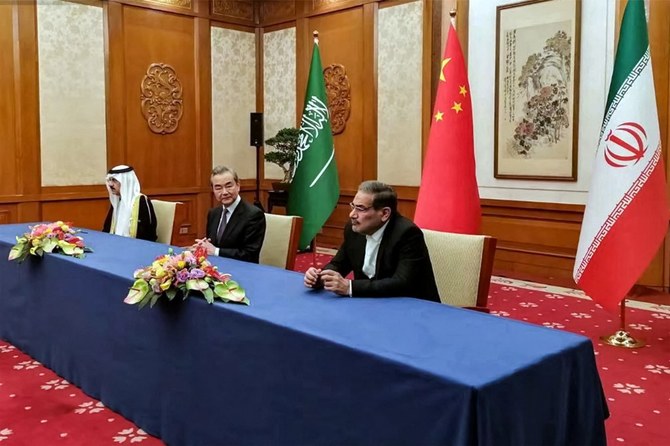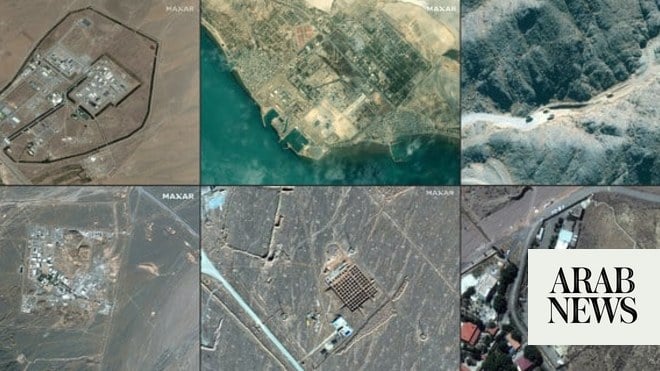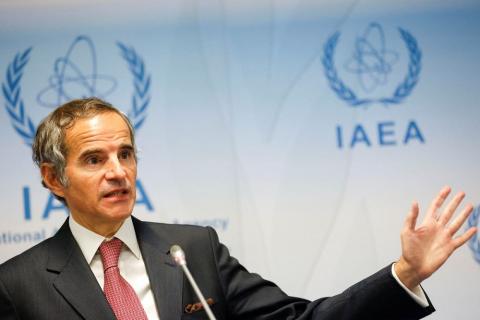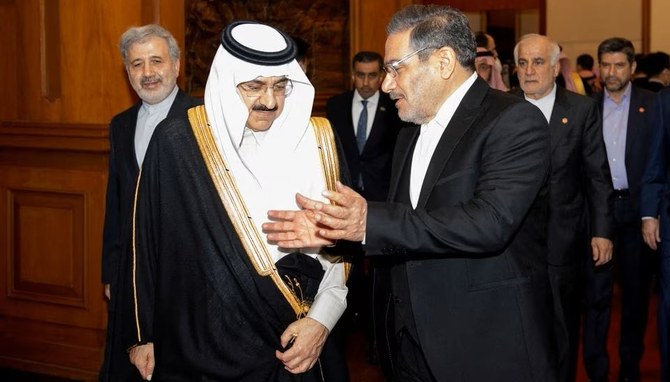
Like many of the Middle East’s issues, Iraq is looked at through the Iranian lens. Iraq has been a great opportunity since the mid-2000s for Iran and the Arab world to find a good and strong balance and to bring about change for the region. Unfortunately, this week’s assassination of the Iraqi analyst and political adviser Hisham Al-Hashimi has proven once again that this is wishful thinking. Iraq has become a territory for Iran to expand its revolution and hegemony. Hence, as in Lebanon, it is a land where the rule of the Iranian militias and proxies replaces the rule of law. These are lands where not even suggestions are acceptable and the consequence for the messenger is either death or exile.
Therefore, it is always surprising to hear, mostly from Iranian pundits, that Iran is surrounded by enemies and needs to defend itself in order to justify its proxy wars and the presence of armed militias all over the region. They also keep reiterating that the Iranian regime is defending and supporting oppressed Shiite minorities all over the Arab world.
One might argue that, in the 1980s, Iran was indeed surrounded by hostile countries, from Iraq to Afghanistan. Yet, since 2003, this has completely changed; the regimes and governments in Afghanistan, Pakistan and Iraq, after the fall of Saddam Hussein, are all, in principle, friendly to Iran. As for the region’s Shiite communities, they are not in need of Iranian protection — a quick look at how Iranian citizens are treated in their home country compared to how they live nowadays in Arab countries suffices to prove this.
The problem with Iran is not about it being a religious regime; this is the composition and the will of the country and its citizens are free to support or oppose it. The problem lies in its relentless attempts to export and impose the regime’s ideology throughout the Arab region since 1979. It is like an Islamic version of Leon Trotsky’s vision of communism.
If Iran did not engage in terrorist activities outside its own territory, it could have constructive bilateral relations with countries around the world. Today, Iran is isolated from its region not because it is Persian or Shiite, but because the regime acts in a rogue manner. If it did not, it would not be facing the hardships it does today and its economy, as well as its people, would not be so badly off. Sanctions exist because this regime carries out terrorist activities, has a potential military nuclear program, and interferes negatively in Arab affairs. Arab countries are not seeking confrontation, but are forced to react to Iran’s actions. Therefore, Western analysts’ continuous comparisons between the two are absurd and look more like a blackmail scheme than anything else.
Iraq is the very symbol of the Iranian vision. The regime’s strategy is not to support a fellow country, with the majority of its citizens belonging to the same religious belief it claims to protect. It is a strategy to secure its own agents in the government and state institutions in order to build its loyal and obedient militias — militias that compete with and threaten the sovereign state. Iran’s regime always looks at weakening the state institutions so that they can fulfill their main role of acting as cover for its militias, which can ultimately become the de facto ruler of the country through their death threats and violence.
If Iran’s objectives were indeed to protect Shiite minorities, then it would help support and build the state, not weaken it, like it has done in Iraq and Lebanon. But its objectives are hegemonic. It needs to keep its target countries weakened, regardless of anything else, to make sure its own proxies and agents are the kingmakers and real decision-makers. Iraq is a perfect example of this, and Lebanon is the case study for all its interference programs from Syria to Yemen.
The Iranian regime’s focus is thus not on its bilateral relations with the state, but its control of armed militias. So, when we hear Foreign Minister Mohammed Javad Zarif say during a parliament session last week that he coordinated all his actions with Supreme Leader Ali Khamenei, Qassem Soleimani and also Hassan Nasrallah, this tells you that, despite what Iranian pundits claim, Iran has no doves and hawks, only the orders of the supreme leader and the Islamic Revolutionary Guard Corps (IRGC). It is not supporting Iraq and the Shiite community — it is conducting an expansion of its dictatorship to other territories.
The same applies to every country Iran is trying to control. It is strange that it does not apply this strategy to its eastern border; although the return of Afghans and Central Asian fighters from Syria, where they fought with the IRGC, might pose a problem in the future. However, for now, Tehran has concentrated its focus and armed militias exclusively in the Arab world. One might ask why.
But what have been the results for Iran and its people, for the Shiites it claims to protect, and for the citizens of countries it tries to assert its control over? The answer is simple, nothing but destruction and poverty. Lebanon has been plunged into total chaos and destitution, with no hope of an immediate solution. Even economic reforms would not start to fix the extent of the problem.
Iraq might have a better chance thanks to its new Prime Minister Mustafa Al-Kadhimi. It seems that, with support from most Iraqis, he is trying to change the current situation and hone in on the militias’ lawlessness. Ending the corruption and Iranian interference needs to start with their total dismantling. This has the potential to change the entire Middle East for the better. A stable Iraq would permit the shift toward more balanced relations between Baghdad and Tehran, and could serve as an opening for Iran to do the same with more Arab countries.
A government-to-government relationship, rather than government to Iranian militias, is the key to prompting the start of this change. Just imagine for a second the true revolution if Iran announced its support for Iraq’s leadership plan of dismantling all armed militias. This would be a positive signal that Iraqis from all confessions and the entire region would welcome — a first solid trust-building step.
So there is now a unique opportunity for the Iranian regime, especially as it seems to be suffering both in its regional files like Syria and economically. An overstretched and cash-strapped Iran is also facing domestic issues, with mysterious explosions in strategic sites such as the Natanz nuclear facility. However, as to what to expect from this regime and its proxies, the assassination of Al-Hashimi reminds us that Iran will oppose and combat Al-Kadhimi’s current plan with little hope of compromise.
Khaled Abou Zahr is the CEO of Eurabia, a media and tech company. He is also the editor of Al-Watan Al-Arabi.












